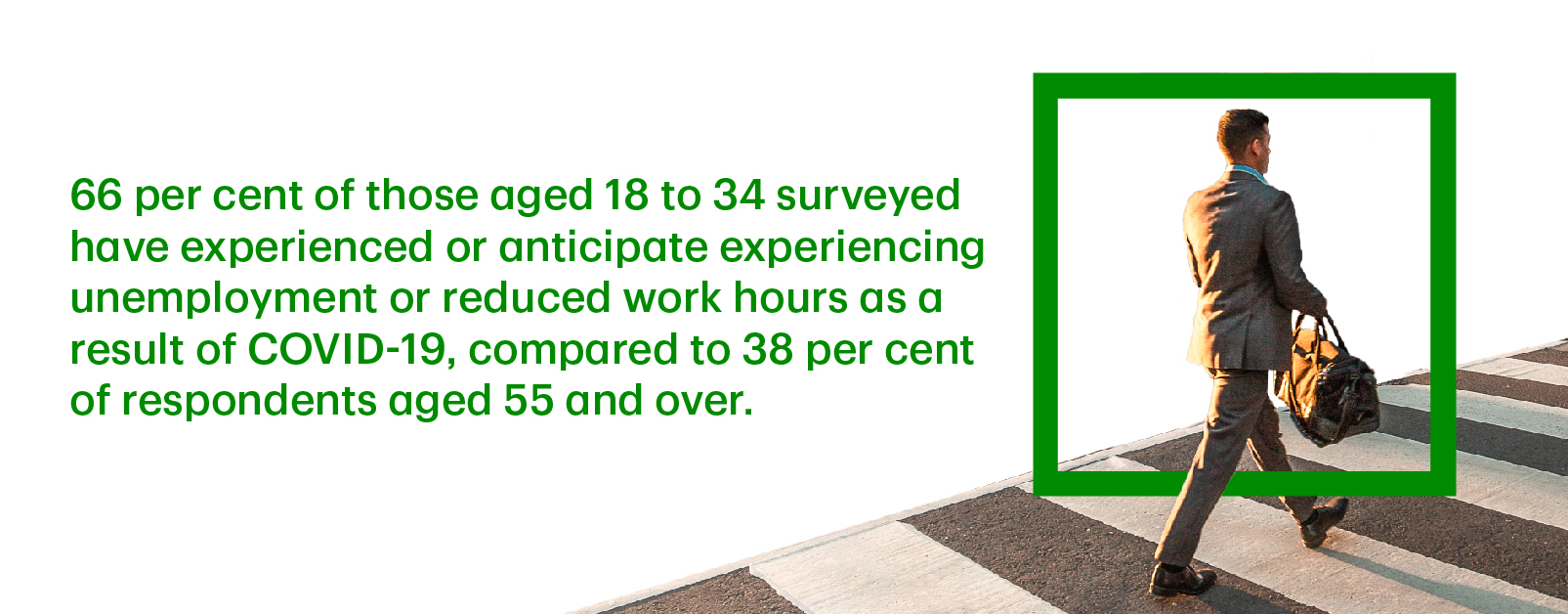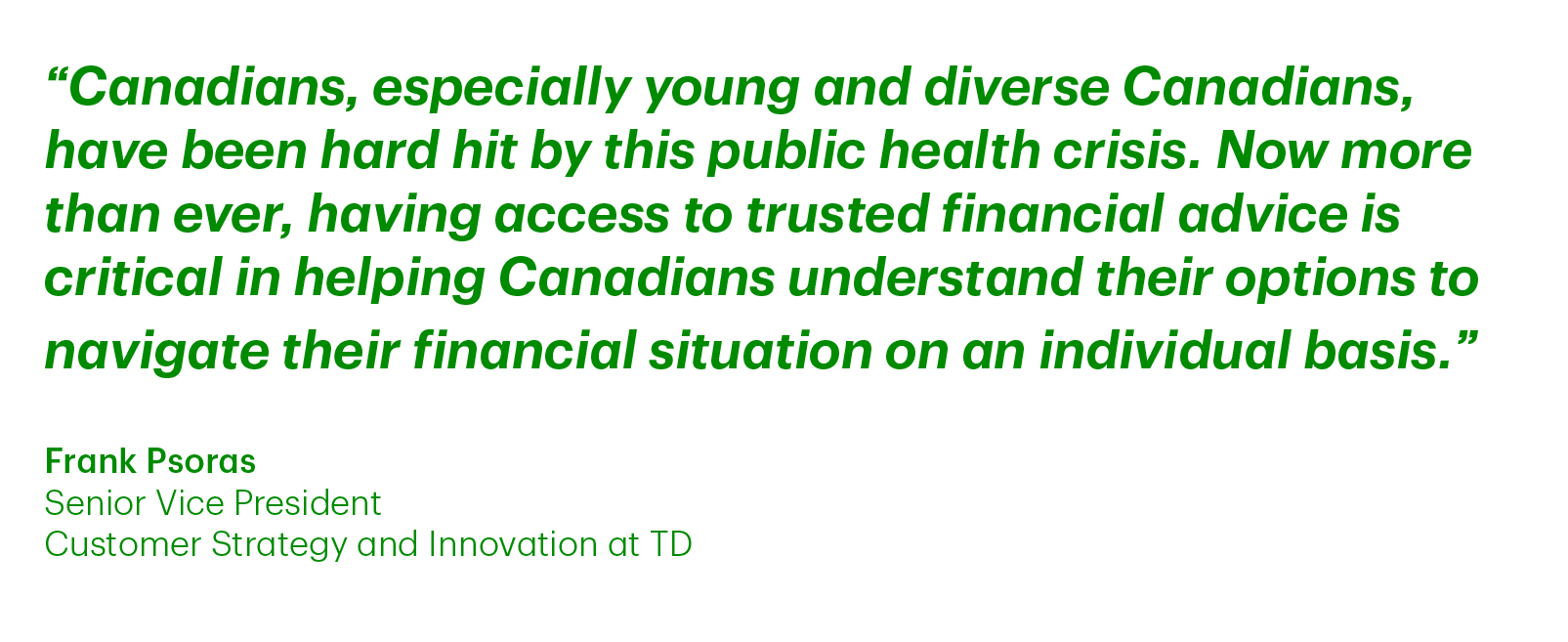A new COVID-19 Impact Poll commissioned by TD measuring the financial impacts of the pandemic shows a dramatic decline in the financial health of Canadians surveyed since the onset of the pandemic in Canada.
The new study, which was conducted between April and May 2020, and features responses from nearly 1,000 adult Canadian respondents, finds that of the those surveyed, young Canadians and those from diverse communities are among the most likely to experience financial insecurity, such as job losses and reduced income, as a result of the COVID-19 pandemic.
Of the respondents surveyed, 38 per cent said they now see themselves as financially 'vulnerable,' compared to only 15 per cent of Canadians who identified as such in the 2019 TD Financial Health Index, a national survey concerning overall 'financial health' in Canada, reported in November 2019.
Black, Indigenous and People of Colour (BIPOC) are among those more likely to experience financial insecurity
The new Impact Poll's data finds that 69 per cent of Filipino-Canadian participants, 65 per cent of South Asian-Canadian participants, and 64 per cent of Black Canadians surveyed said they experienced or anticipate experiencing unemployment or a reduction of income within the next three months, compared to 53 per cent of the general population of Canadians surveyed.
Additionally, 28 per cent of those who identified as Indigenous Peoples said they expect to borrow money for essentials due to COVID-19, compared to 19 per cent of participants from the general population. Twenty-seven per cent of respondents with disabilities said they expect to pay their rent or mortgage late as a result of COVID-19, compared to 20 per cent of the general population.
Young Canadians struggling to meet financial obligations
The Impact Poll also found 66 per cent of those aged 18 to 34 surveyed have experienced or anticipate experiencing unemployment or reduced work hours as a result of COVID-19, compared to 38 per cent of respondents aged 55 and over. All Canadians polled said they were responsible for their household's financial decision-making.
The poll indicates that younger Canadians surveyed may be more likely to struggle to meet basic financial obligations like buying groceries or paying their rent or mortgage.
Less confidence among all age groups and ethnicities
Poll results show that Canadians surveyed are also feeling less financially optimistic, with only 13 per cent of respondents saying they feel confident in their financial future. To compare, in the TD Financial Health Index survey of five months earlier (November 2019), 20 per cent of respondents from similar socio-demographics said they felt confident about their financial outlook.
“Canadians, especially young and diverse Canadians, have been hard hit by this public health crisis. Now more than ever, having access to trusted financial advice is critical in helping Canadians understand their options to navigate their financial situation on an individual basis," says Frank Psoras, Senior Vice President, Customer Strategy and Innovation at TD.

Assisting customers in moving forward
Since March, more than 300,000 customers have worked with TD for relief options such as debt refinancing and payment deferrals for credit cards and mortgages.
To continue supporting customers in their journey forward, the bank recently launched TD Ready Advice, a coordinated response to supporting financial recovery from COVID-19. The TD Ready Advice online portal connects customers to helpful, personalized advice as well as helpful information, such as articles on relevant topics, including information on mortgage deferrals, debt financing, and debt relief options.
In addition to online resources, TD Ready Advice will include proactive outreach to help customers navigate financial challenges that have emerged as a result of the pandemic. It also includes financial advice to customers looking for investment guidance for the future.
Customers can visit the recently launched TD Ready Advice portal and book an appointment – either online, over the phone or in-person – with an advisor to obtain personalized advice and investment guidance as they continue on their financial path forward.
For more on TD Ready Advice, visit www.td.com/readyadvice.
